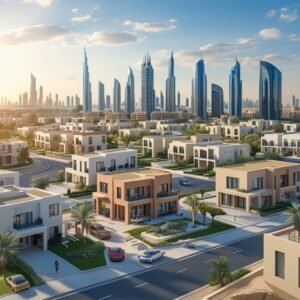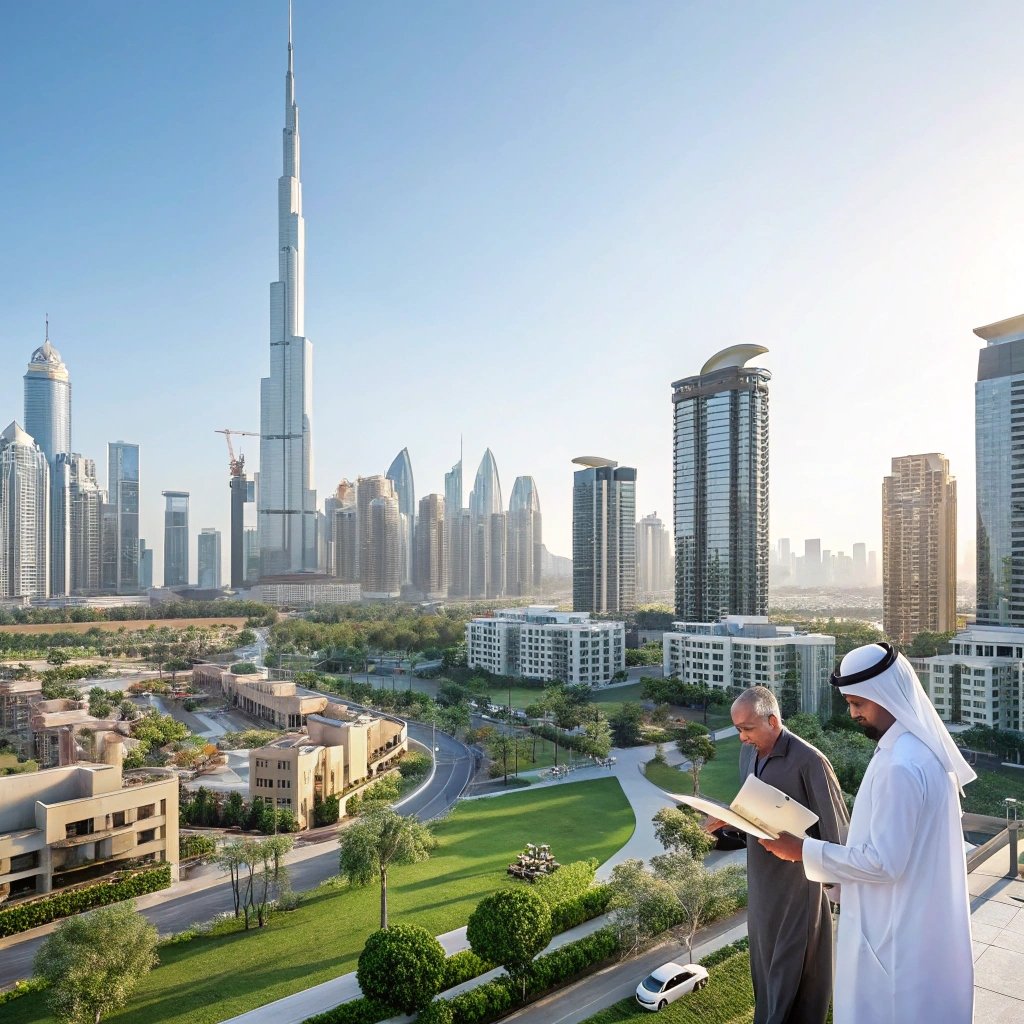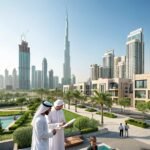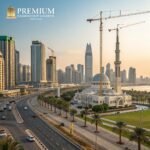It feels like everyone’s talking about property – but the dream of owning a piece of paradise in the UAE seems out of reach for many.
You’ve probably been told to wait for prices to drop, or that you need a massive down payment and endless savings. The reality is, smart strategies can open doors to affordable property investments here.
It’s about shifting your perspective – not chasing the hottest trends, but uncovering hidden opportunities.
Imagine building long-term wealth through strategically chosen properties, generating passive income, and securing a comfortable future for those you care about.
Let’s dive into exactly how you can unlock affordable property investments in the UAE – revealing the secrets that seasoned investors use.
Investing Smart in Dubai Real Estate
Thinking Dubai real estate is only for billionaires? That’s a common misconception – it doesn’t have to be.
A lot of advice focuses on beachfront mansions and prime locations, but those aren’t accessible options for most people. The truth is, smart choices can unlock significant returns even with a smaller budget.
You might see others boasting about lavish properties, while you’re considering whether to dip your toes into the market at all.
The key isn’t necessarily buying the flashiest property; it’s understanding how to strategically invest in areas poised for growth and long-term value.
Every moment spent researching ultra-expensive developments could be used exploring options that deliver consistent, predictable returns.
But here’s what most real estate guides miss: building wealth isn’t solely about the prestige of your property; it’s about understanding emerging neighborhoods and identifying undervalued assets.
Let’s explore how you can start building a solid portfolio, regardless of your initial investment.
Decoding UAE Property Trends
It’s like looking at a map – understanding trends is key when it comes to property investments in the United Arab Emirates. The market isn’t just about price tags; it’s about recognizing shifts and opportunities.
Currently, there’s a noticeable increase in demand for properties in areas outside Dubai’s central districts. This reflects a desire among many to live in more suburban or coastal locations offering greater space and a quieter lifestyle. There is also rising interest in sustainable developments that focus on energy efficiency and green living.
This shift is largely driven by changes in lifestyle preferences and the increasing popularity of remote work, which has made it possible for people to live further from city centers without compromising their careers. Government initiatives promoting diversification and investment also play a significant role.
Historically, Dubai’s downtown area was the undisputed epicenter of property investment. But now, investors are actively seeking out areas like Sharjah, Ajman, and even parts of Ras Al Khaimah, where prices are generally more competitive.
Decoding these trends means recognizing that a ‘one-size-fits-all’ approach doesn’t work. Careful research into specific locations, considering factors like infrastructure, amenities, and future development plans is crucial for any potential investment.
Managing Sharia-Compliant Finance
During Sharia-compliant finance, you’re tapping into a system built around principles that align with your values. It’s about structuring investments in a way that adheres to Islamic law – ensuring everything is ethical and transparent.
This often means avoiding interest payments, which are prohibited under Islamic teachings. Instead, you’ll find financing options like profit-sharing or leasing arrangements.
Think of it this way: instead of paying a traditional bank interest on a loan to buy property, you might invest alongside the financier – sharing in any profits generated by the investment. Or perhaps you lease a property under an agreement where your payments are tied directly to the rental income.
The beauty of Sharia-compliant finance is that it provides clarity and trust. You know exactly how returns are being earned, and there’s no ambiguity about the underlying transactions.
This level of transparency can be particularly appealing when you’re investing in a market like the UAE, where regulations and ethical considerations are increasingly important to many investors. It gives you confidence that your investment aligns with your beliefs.
Essentially, Sharia-compliant finance offers a pathway to property investments that feel good – both financially and ethically. You’re not just building wealth; you’re doing so in accordance with principles that matter to you.
Fractional Ownership and REITs Explained
Fractional ownership and Real Estate Investment Trusts (REITs) offer a pathway for you to participate in property investment without needing substantial capital. Essentially, these options allow you to own a portion – or share – of a valuable property rather than purchasing the entire thing outright.
With fractional ownership, you’re buying a percentage of a property, typically high-value assets like luxury homes or commercial buildings. This means your investment is smaller and more manageable, offering diversification within your portfolio.
Think of it this way: Instead of spending millions on a penthouse apartment, you could invest in a fraction of it – perhaps 5% or 10%. REITs are similar; they’re companies that own portfolios of income-producing real estate. You buy shares in the REIT, and those shares represent your ownership stake in the underlying properties.
Understanding Rental Yield Potential
Remember, understanding rental yield potential is key when exploring affordable property investments in the UAE. It’s essentially about figuring out how much income a property can generate through rent compared to its purchase price.
Let’s break down what that means – it’s all about calculating your return on investment. You want to see if the money you put into a property is actually making you more money over time.
For example, let’s say you buy an apartment for AED 600,000. If you rent it out for AED 40,000 per year, your gross rental yield would be 6.7%. That means that for every dirham invested in the property, you’re earning back approximately 6.7 fils in profit – before factoring in expenses like maintenance or management fees.
It’s important to consider all costs when assessing this potential. Don’t just look at the gross yield; think about operating expenses too. These include things like property management fees, service charges, and any repairs that might be needed.
Let’s say those operating expenses total AED 12,000 per year. Your net rental yield would then drop to around 5.3%. This gives you a more realistic picture of what your actual profit will be.
So, calculating this rental yield potential is crucial – it helps you compare different properties and determine which ones offer the best investment opportunities in the UAE’s dynamic property market.
Tax Implications and Legal Structures
Despite tax implications and legal structures being complex, understanding them is absolutely crucial when considering property investments in the UAE. Let’s break down what you need to know.
Firstly, let’s talk about taxes – there aren’t any annual property taxes for homeowners in the UAE. However, capital gains tax will apply if you sell your property at a profit. This is something you should discuss with a financial advisor to understand how it might impact your investment strategy.
Currently, there are no inheritance taxes either, which can be a significant benefit for passing on assets. But remember, laws can change – staying informed about updates is key.
Next, let’s look at legal structures. You have several options when it comes to owning property in the UAE, each with different implications. The most common are:
Sole Ownership: This means you own the property outright. It’s straightforward but carries more personal liability risk.
Limited Liability Company (LLC): An LLC can be a great option for investment properties, offering protection from liabilities and potentially allowing for business expenses to be deducted. You’ll need to understand how this structure affects your tax obligations.
Tenancy Agreements: This is the most common way of owning property in the UAE – you lease it out to tenants.
It’s important to note that choosing the right legal structure will affect everything from your liability protection to your ability to claim certain deductions, so seeking expert advice is absolutely essential. You need to make sure you’re fully compliant with all regulations and understand the long-term implications for your investment.
Building a Long-Term Portfolio
With affordable property investments in the UAE, building a long-term portfolio is entirely achievable.
Considering factors like off-plan developments and properties outside prime areas can significantly reduce initial costs. These options offer substantial potential for growth over time.
Think about locations near emerging transport hubs or residential zones— these often see increased demand as the area develops, boosting property values. Smart choices here will benefit you greatly in the long run.
Diversification is key to a robust portfolio and should be considered when building for the future.
Don’t put all your resources into one asset. A mix of residential and commercial properties, or even different types within a single sector, can mitigate risk and maximize returns as you build this investment over time.
So, focusing on strategic property choices coupled with careful diversification is the foundation for a strong, long-term portfolio in the UAE’s dynamic real estate market.
Creative Financing Options – Beyond Mortgages
After exploring traditional mortgage options in the UAE, let’s delve into some creative financing approaches that can unlock affordable property investments. It’s about thinking outside the box!
One option is to consider a Sharia-compliant finance solution. These adhere to Islamic principles and often offer more flexible terms than conventional loans.
These typically involve an asset-based financing, where you contribute a larger down payment and the lender finances the remaining portion of the property value. This can significantly reduce monthly payments.

Another avenue is to explore partnership investments. You could join forces with another investor – pooling resources together for a bigger investment.
This allows you to acquire properties that might otherwise be out of reach, and share the responsibilities along with the profits. It’s about building a strong team!
Essentially, there are many ways to approach property investments beyond simply securing a mortgage. Exploring these alternative financing options can open doors to more affordable opportunities in the UAE market.
Utilizing Government Incentives & Programs
While many dream of owning property in the UAE, the initial cost can seem daunting. Fortunately, there are several government initiatives designed to make homeownership more accessible for you. Let’s explore some key programs that could significantly reduce your investment burden.
The Mohammed Bin Rashid Housing Establishment (MRES) offers subsidized housing options – a fantastic starting point for many. These properties come with attractive payment plans and minimal down payments, making them incredibly affordable.
These homes are often located in designated areas, offering convenient access to amenities and transportation links. The key is that you’re getting a substantial discount on the property value itself through this program.
Furthermore, there’s the Real Estate Bank mortgage scheme— it provides attractive interest rates and loan terms designed to ease the financial strain of purchasing a property.
The bank actively collaborates with developers to offer competitive financing options, often including assistance with initial setup costs. This can make a huge difference in your overall investment outlay.
Essentially, by Managing these government incentives and programs – like MRES’s subsidized housing and the Real Estate Bank’s mortgage schemes— you can substantially lower the upfront cost of property ownership in the UAE, opening doors to realizing that dream.
Assessing Risk and Due Diligence
Think about risk when considering any property investment. It’s absolutely crucial— especially in a dynamic market like the UAE. Understanding potential downsides protects your financial future.
Firstly, thoroughly investigate the property itself. A professional inspection is key – it reveals hidden issues that could significantly impact value and costs.
Don’t just rely on the seller’s disclosures. An independent assessment identifies structural problems, plumbing concerns, or electrical faults before you commit. This minimizes unexpected expenses down the line.
Next, examine the location carefully. Research local development plans and potential future disruptions – like new construction projects or infrastructure changes.
Consider factors such as proximity to transportation hubs, schools, and amenities. Also, analyze any environmental risks—flood zones or areas prone to noise pollution can affect property value.
Ultimately, assessing risk and conducting thorough due diligence provides you with the confidence needed for a successful investment in UAE property.
Emerging Markets – Beyond Dubai
Many people think of Dubai when they consider property investments in the United Arab Emirates. But there are other emerging markets offering fantastic opportunities for those looking to diversify their portfolios. These areas aren’t just about high-end luxury; they represent exciting potential growth and often, more affordable entry points.
Consider cities like Sharjah or Ajman – these neighboring emirates offer a significantly lower cost of property compared to Dubai. You might find apartments with similar amenities for considerably less investment. This is due in part to ongoing infrastructure development and increasing tourism.
The government’s strategic vision for economic diversification, away from solely oil revenue, is driving growth across these regions. New residential developments, commercial centers, and leisure facilities are constantly being built, boosting property values.
While Dubai boasts a well-established luxury market, the emerging markets offer a chance to capitalize on early-stage development and potentially higher returns before prices escalate dramatically.
Exploring these ‘beyond Dubai’ options means you’re not just investing in real estate; you are also investing in a region with strong growth prospects and opportunities for rental income, particularly as tourism continues to expand.
Sustainable Investments in the UAE
Have you been considering property investments but worried about costs? Fortunately, the United Arab Emirates presents some genuinely exciting opportunities for sustainable investment.
The key here is looking beyond just high-end luxury developments. There’s a growing emphasis on eco-friendly and community-focused projects that offer long-term value and appeal.
For example, you might discover residential communities designed with energy efficiency in mind – solar panels, smart home technology, and water conservation systems are becoming increasingly common. These features not only reduce operating costs but also attract tenants seeking a more sustainable lifestyle. Furthermore, many developments prioritize green spaces and community amenities, boosting property values and creating desirable living environments.
Another area to explore is investment in properties within established master-planned communities that have strong sustainability credentials. These often include robust waste management programs, renewable energy initiatives, and a commitment to preserving natural resources.
This translates into reduced environmental impact and potentially lower utility bills – factors that are increasingly important for both investors and tenants alike. Researching certifications like LEED (Leadership in Energy and Environmental Design) can be a valuable tool when assessing the sustainability of a property investment.
Investing in property shouldn’t feel like climbing Mount Everest – it can be surprisingly accessible!
Smart choices regarding real estate are within reach for more people than ever before.
The UAE market, particularly certain areas, offers opportunities that were previously considered exclusive to high-net-worth earners. Strategic research into emerging neighborhoods and off-plan developments reveals a landscape ripe with potential investment options. Focusing on properties outside of Dubai’s most central districts can unlock significantly more affordable entry points while still capitalizing on the region’s robust growth. Careful consideration of mortgage rates, long-term rental yields, and government initiatives designed to encourage property ownership also plays a crucial role in maximizing returns.
The sooner one begins exploring these avenues, the greater the chance of securing a desirable asset at a favorable price. Diligence in due diligence – understanding local regulations, assessing potential risks, and consulting with experienced professionals – is paramount to success. Don’t let hesitation hold you back from realizing your investment dreams.
Start researching today; the right property opportunity awaits, promising a rewarding future for those who take proactive steps towards building wealth through strategic UAE real estate investments.






Leave a comment